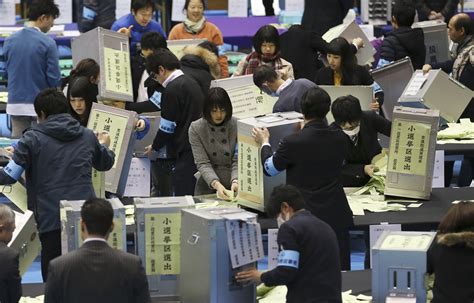Japan Elections

On July 10, 2022, Japan held a crucial Upper House election, a key milestone in the nation's political landscape. This election determined the composition of the House of Councillors, the upper chamber of Japan's bicameral National Diet, and it carried significant implications for the ruling Liberal Democratic Party (LDP) and its coalition partner, Komeito.
The election results signaled a continued dominance of the LDP-Komeito coalition, which secured a solid majority in the 248-seat chamber. This victory solidifies Prime Minister Fumio Kishida's leadership and provides a mandate for his government's agenda, which includes economic recovery post-COVID-19, national security enhancements, and social welfare reforms.
Amidst global economic challenges and geopolitical tensions, the election outcome underscores the Japanese electorate's trust in the stability offered by the incumbent coalition. The LDP's platform, emphasizing economic stimulus, defense capabilities, and constitutional reform, resonated with voters, particularly in light of the ongoing war in Ukraine and regional tensions.
The Campaign and Key Issues

The campaign period leading up to the election was marked by intense debate on a range of issues. At the forefront was the economy, with the LDP promising to stimulate growth through large-scale investments in green energy and digital infrastructure. The party also highlighted its commitment to strengthening Japan's defense capabilities in response to growing regional security threats.
Additionally, constitutional reform was a key talking point. The LDP, which has long advocated for a revision to Japan's pacifist constitution, argued that it is necessary to ensure the country's sovereignty and national security. This stance was met with mixed reactions, with some voters expressing concern over potential changes to the constitution's pacifist provisions.
The opposition parties, including the Constitutional Democratic Party of Japan (CDPJ) and the Japanese Communist Party (JCP), focused their campaigns on social welfare and the need for a more equitable society. They criticized the LDP's economic policies, arguing that they have widened income disparities and failed to provide sufficient support for low-income households.
Election Results and Analysis

The LDP-Komeito coalition's victory was decisive, winning a combined total of 76 seats, well above the majority threshold. The LDP alone secured 63 seats, an increase from its previous tally, while Komeito maintained its 13 seats.
The CDPJ, the largest opposition party, managed to win 17 seats, a modest gain from the previous election. The JCP, despite a strong showing in urban areas, saw a decline in its seat count, winning only 3 seats.
The election saw a relatively low turnout, with just over 49% of eligible voters casting their ballots. This is attributed to a lack of significant policy differences between the major parties and a general apathy towards politics among younger voters.
The results also indicate a shift towards a more conservative political landscape in Japan. The success of the LDP and its coalition partner reflects a growing support for a stronger national defense and a more assertive foreign policy.
| Party | Seats Won |
|---|---|
| Liberal Democratic Party (LDP) | 63 |
| Komeito | 13 |
| Constitutional Democratic Party of Japan (CDPJ) | 17 |
| Japanese Communist Party (JCP) | 3 |
| Others | 52 |

The "Others" category includes smaller parties and independents who managed to secure seats in the Upper House.
Implications for Japan's Future
The election outcome sets the stage for a number of important policy decisions in the coming years. With a stable majority, the LDP-Komeito coalition is poised to push forward its agenda, which includes significant investments in renewable energy and digital technologies.
The government's focus on economic recovery is expected to drive a range of initiatives, from infrastructure development to support for small and medium-sized enterprises. Additionally, the commitment to enhance national security will likely translate into increased defense spending and a more proactive foreign policy.
However, the coalition will also need to address the concerns of those who voted for opposition parties. This includes ensuring that economic growth benefits all segments of society and addressing issues such as income inequality and social welfare.
Furthermore, the debate on constitutional reform is likely to continue, with the LDP pushing for a revision to allow for a more robust national defense. This will require careful navigation of public opinion and potential opposition from those who value Japan's pacifist traditions.
Global Impact and Japan's Role
Japan's election results have implications that extend beyond its borders. As a key player in the global economy and a key ally of many nations, Japan's policies and leadership decisions have a significant impact on the international stage.
The continued stability of the LDP-Komeito coalition sends a signal of political certainty to international partners and investors. This could boost investor confidence and facilitate Japan's participation in global initiatives, such as climate change mitigation and technological innovation.
Moreover, Japan's commitment to enhancing its defense capabilities is in line with the broader regional security landscape. With rising tensions in East Asia and the ongoing war in Ukraine, Japan's proactive stance could contribute to regional stability and strengthen alliances.
Conclusion

The 2022 Upper House election in Japan marked a significant moment in the nation's political trajectory. The results reflect a continued trust in the LDP-Komeito coalition's ability to steer the country through complex domestic and international challenges.
As Prime Minister Kishida moves forward with his agenda, the focus will be on delivering on campaign promises, balancing economic growth with social equity, and navigating the complex web of international relations. The coming years will be crucial in shaping Japan's future and its role on the global stage.
What is the significance of the House of Councillors in Japan’s political system?
+
The House of Councillors, or Sangiin, is the upper chamber of Japan’s National Diet. It plays a crucial role in checking and balancing the power of the lower chamber, the House of Representatives. The Councillors have the power to amend or reject bills passed by the lower house, providing a crucial safeguard against hasty or ill-considered legislation.
How often are Upper House elections held in Japan?
+
Upper House elections in Japan are held every three years, with half of the chamber up for election at a time. This system ensures a constant turnover of Councillors and provides a more stable political environment compared to the lower house, where elections can be called at any time.
What are the key challenges facing Prime Minister Kishida’s government in the wake of the election victory?
+
Prime Minister Kishida’s government will face several challenges, including implementing economic stimulus measures to boost growth, addressing income inequality and social welfare concerns, enhancing national security, and navigating the complex issue of constitutional reform. Balancing these diverse priorities while maintaining political stability will be crucial.



